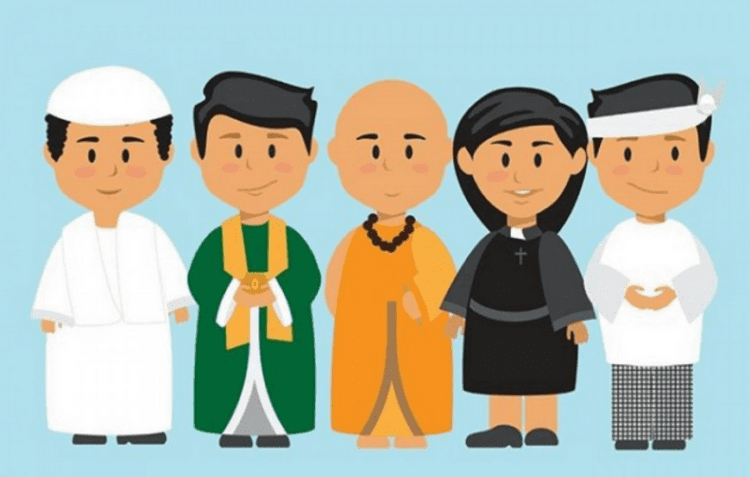Plurality is an understanding of diversity to be able to live tolerantly in the midst of society. The community here is a pluralistic society both culturally, religiously, linguistically , politically, and so on. Plurality is also known as pluralism.
Understanding Pluralism
Webster’s Revised Unabridge Dictionary
According to Webster’s Revised Unabridged Dictionar , plurality is
- results or circumstances being plural.
- the state of being a pluralist; have more than one about belief.
Pluralism according to experts
The following are some experts who contribute their views regarding the notion of pluralism or plurality.
- Mohammad Shofan
Pluralism is an effort to build a theological normative awareness and social awareness. - Syamsul Maa’arif
According to Syamsul Maa’rif, pluralism is an attitude of mutual understanding and respect for differences in order to achieve inter-religious harmony. - Webster
Pluralism is a social condition that exists in various ethnicities, religions, races and ethnicities that maintain the tradition of participating in society. This situation creates a pattern of people living side by side in the existing diversity. - Anton M. Moeliono
Pluralism is a thing that gives plural meaning in terms of different cultures in a society. Respect for other cultural values and mutual respect are the basic foundations for the creation of pluralism. - Santrock
Santrock states that Santrock is the acceptance of each individual who believes that cultural differences must be maintained and respected.
plurality attitude
Attitudes that reflect plurality include the following:
- Living in Difference (Attitude of Tolerance/Tasamuh)
The attitude of accepting other people who are different in view of our personal way of life. - Mutual Respect Place
all human beings in a relation of equality, no one is higher or lower. - Mutual trust
Mutual trust is one of the most important elements in living relationships between human beings in a culture or society. - Interdependence (the attitude of mutual need / interdependence)
Humans are social creatures (homo socius) , between one another are mutual need and complement each other.
An example of a plurality attitude
Examples of the application of the attitude of plurality in being carried out are as follows.
- A company that accommodates people who have different ethnicities, races, and religions
- The four houses of worship that were built side by side in Kalipuru Hamlet, Kendal, Central Java are a small example of the high plurality of Indonesian society.
- Balinese people who are predominantly Hindu can live side by side with immigrant communities living in Bali who in fact have religions outside of Hinduism.
- Help others when they have an accident or become a victim of a natural disaster.
- Togetherness in mutual cooperation activities to clean up the surrounding environment.
The impact of the attitude of plurality
The direct and indirect consequences of the existence of a plurality attitude will provide benefits, among others, as follows:
- The emergence of mutual respect.
- Tolerance everywhere.
- Creating a pluralistic society
- etc
